Interest Free Financing Up To 36 Months
WE DO NOT ONLY PUMP YOUR TANK - WE CLEAN IT!
Multiple Financing Options Are Available Up To 36 Months
Interest Free Financing Up To 36 Months
WE DO NOT ONLY PUMP YOUR TANK - WE CLEAN IT!
Multiple Financing Options Are Available Up To 36 Months
Choosing between a septic system and a sewer connection is a major decision for new homeowners. While both are designed to manage wastewater, each option comes with its own advantages, responsibilities, and long-term implications. Whether you're building in a rural area without access to municipal sewer lines or have the choice between the two, understanding what each system entails can help you make the right call.
In this blog post, our professionals from Septic Blue will guide you through the key differences to help you decide which system suits your new home best.
A septic system is an independent underground wastewater treatment structure commonly used in rural areas. It includes a septic tank and a drain field. Wastewater from the home flows into the tank, where solids settle and break down. The remaining liquid flows into the drain field for further natural filtration. A public sewer system, on the other hand, collects wastewater from multiple homes and businesses and directs it to a centralized treatment facility. The city or county maintains the infrastructure, removing any maintenance responsibilities from the homeowner. Both systems are effective, but they operate in fundamentally different ways that impact cost, maintenance, and long-term reliability.
Initial installation costs often play a big role in the decision between septic and sewer. Installing a septic system can range from $3,000 to $10,000 or more, depending on soil conditions and system complexity. However, once installed, your monthly costs are generally minimal aside from routine septic pumping and occasional inspections. On the contrary, connecting to a municipal sewer can involve expensive hookup fees, especially if lines need to be extended to your property. Sewer systems typically require monthly usage fees that never go away. Over time, the recurring costs of public sewer access may add up to more than the maintenance expenses of a private septic system.
One of the most important differences between a septic system and a sewer connection is who is responsible for maintaining it. With a sewer system, the city handles all repairs, cleaning, and emergencies. You simply pay your monthly fee and let the municipality manage the system. In contrast, if you choose a septic system, you are solely responsible for its upkeep. That includes regular septic pumping and cleaning, which must be performed by a professional septic company in Burlington, NC every 3 to 5 years, depending on usage. Failing to maintain your septic system can result in expensive repairs or even a complete system replacement.
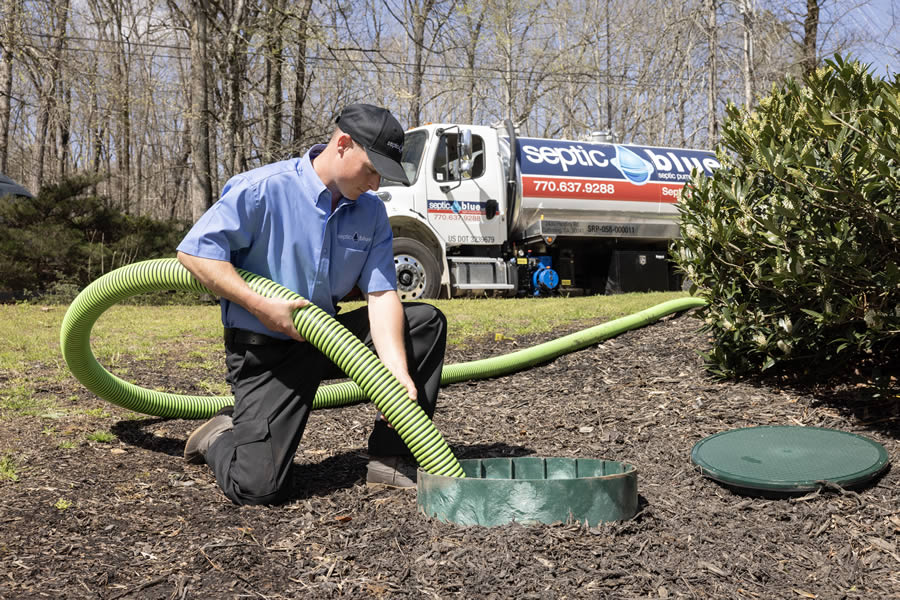
Septic tank pumping in Raleigh has never been so affordable and accessible thanks to the professionals at Septic Blue. We are…
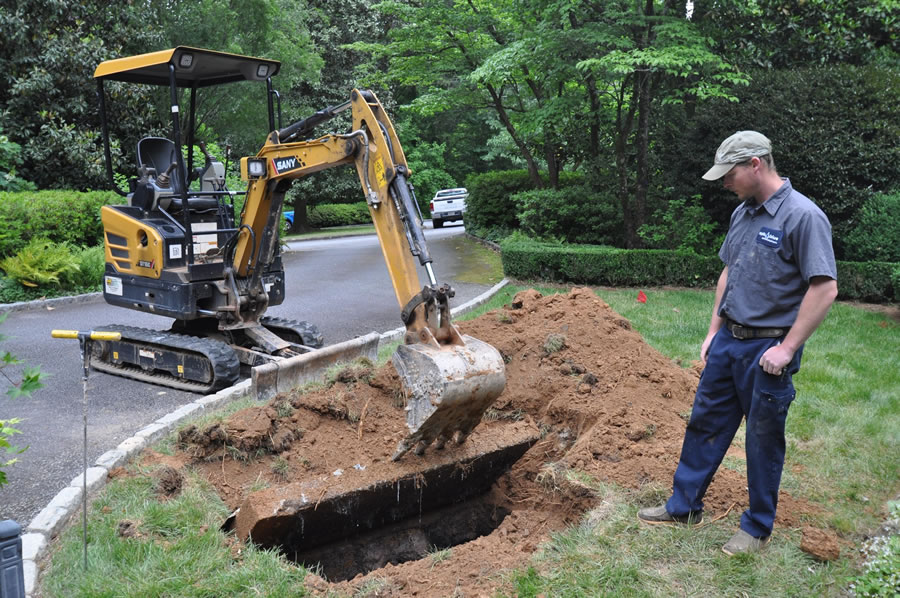
One quarter of Americans rely on septic tanks to process household waste. Most Septic Blue locations have septic tank experts who…
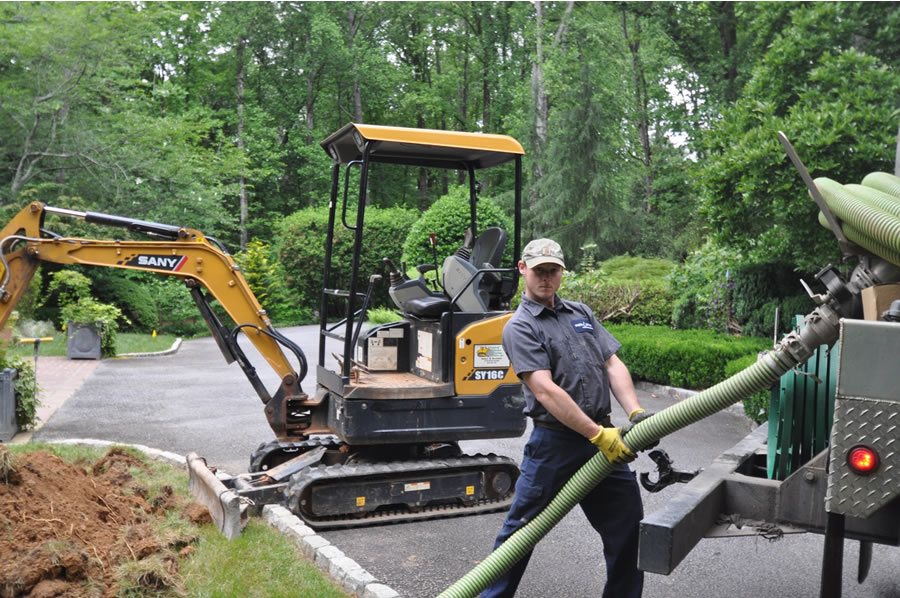
Call Septic Blue today for a second opinion. If you choose to go with Septic Blue, you'll receive $250 off your…
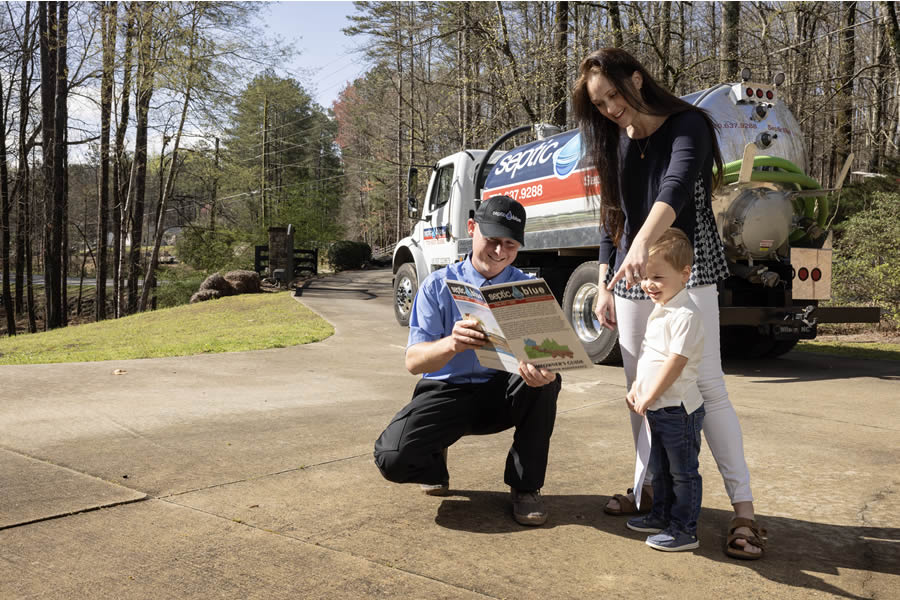
If you are a homeowner or resident in Raleigh that is among the 20 percent of households in the U.S. with…
Professional Saptic Plumbing solutions for every need. Contact Us Today!
When properly maintained, septic systems can be environmentally friendly. They treat wastewater onsite, allowing it to filter naturally into the ground and recharge groundwater supplies. Septic systems encourage water conservation since homeowners tend to be more conscious of what they flush or pour down the drain. Municipal sewer systems, while highly regulated, can suffer from overflows and leaks that may go undetected for long periods. However, they are designed to handle large volumes of wastewater and are continually monitored by local authorities, which can add a layer of reliability in terms of environmental safety.
Ultimately, whether a septic or sewer system is better for your new home depends on your location, budget, and willingness to manage system maintenance. If you're in a rural area or prefer more control over your home's wastewater treatment, a septic system supported by reliable septic cleaning and pumping services might be ideal. If you're looking for convenience and a hands-off approach, a municipal sewer connection may be more suitable. Consulting with a professional septic service or local authority can help ensure you choose the best system for your property and lifestyle.

Selling a home comes with a long checklist of responsibilities, from preparing disclosures to scheduling appraisals and negotiating with buyers. If…
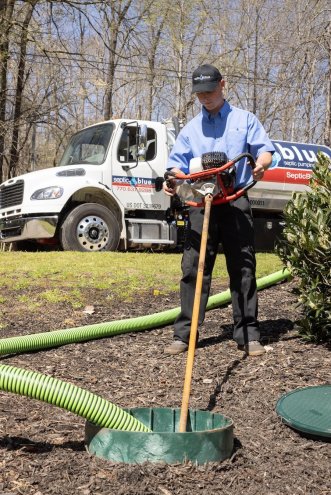
Your septic system plays a critical role in managing wastewater safely and efficiently, protecting both your home and the surrounding environment.…
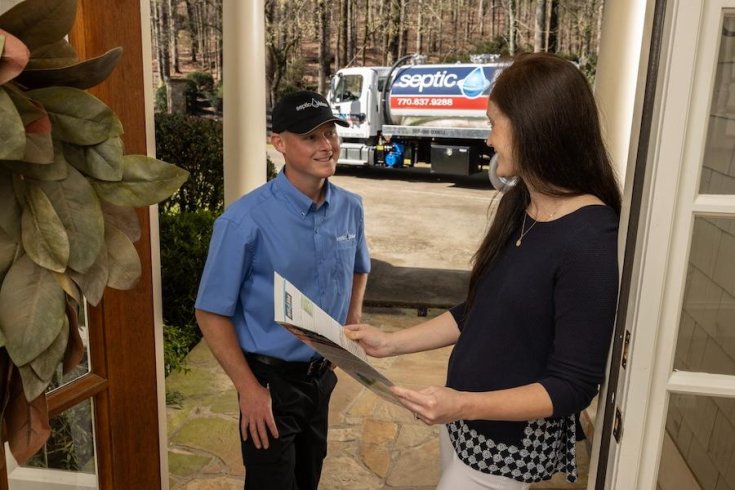
Hiring a septic company in Raleigh, NC involves more than comparing prices or scheduling the earliest appointment. Septic pumping, cleaning,…
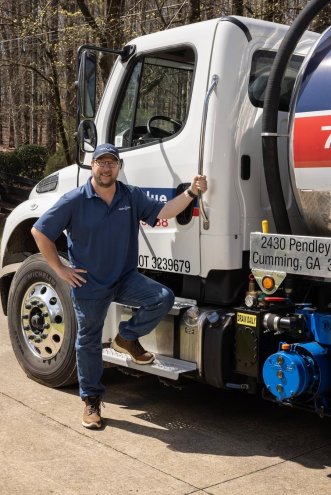
A septic system is designed to move wastewater efficiently from your home into a tank and then into the drain field.…